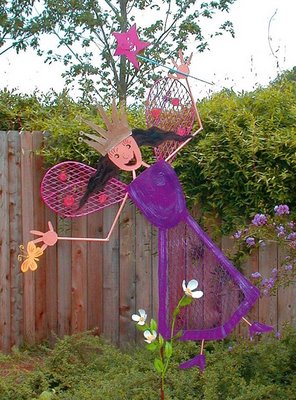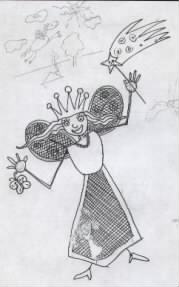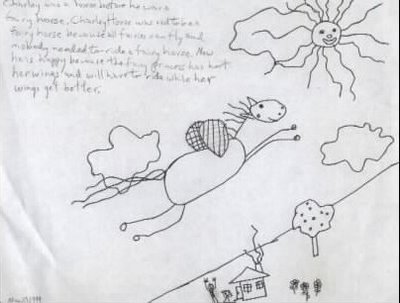By Joel Haas
With a
In self defense, our parents eased the television restrictions so we could watch Channel 5’s Saturday morning “Sunrise Theater.”
Using bright red fingernail polish, Mom placed a mark on the TV volume knob—under no circumstances were we to turn the volume beyond that red mark. Thus, our parents could sleep late while we watched Grade B horror movies.
After pouring our bowls of cereal and making chocolate milk, we’d plop down in front of the 1957 vintage black and white “portable” TV. (Portable in those days meant a TV small enough it only required a gorilla sized man wearing a steel truss to move it from point “a” to point “b.”)
At that time (and even into the early 1980s)
When the last photo of magnolias faded and the Men’s Chorus fell silent, the real fun began.
“Welcome to Sunrise Theater,” the announcer’s voice would intone, “Bringing you the best in exciting movies from
Invariably, that meant ancient grade B movies from crypts almost as old as Dracula’s. The plots were witless, the special effects, cheesy and dirt cheap, and the acting only a cut above that found in any local high school.
Nonetheless, it scared us silly.
Nearly half the movies seemed to involve the rugged and redoubtable actor Andrew Dugand saving
No matter how horribly its genes had been altered by atomic blasts, any monster maintained an instinct to move toward
Just as surely, a young, nubile scientist’s daughter, in tight khaki riding breeches would fall in love with Andrew Dugand only to be stolen away by the monster d’ jour. These girls could be Olympic track stars, able to sprint 50 miles with no problem, but let one giant spider show up and they’d run around in circles in the Nevada desert until they had tripped over the only rock within miles, spraining their ankles. The hero was forced to change his plan because he had to save Miss Riding Breeches. This never made sense to little boys. What was saving Miss Riding Breeches compared to letting giant ants and giant locusts ravage
Some movies scared us worse than others. Some movies scared me more than my brothers and some scared them more than me.
It was just such a movie that inspired my first sculpture as well as bringing out all my usual jerk big brother qualities.
THE CRAWLING EYE, a British movie made in 1957 under the title THE TROLLENBERG TERROR, scared my younger brother Michael. The plot: mind reading aliens shaped like giant eyeballs with tentacles attack Earth. The aliens’ stare and tentacles freeze people to death and/or behead them. The aliens meet their match and doom when they attack a “high tech” fort on
Andrew Dugand sat this one out. Re titled THE CRAWLING EYE for American distribution, the hero was played by Forrest Tucker (who later played the sergeant in the US TV series F Troop.)
In any event, the movie did not scare me, but it transfixed Michael with fright. Evil older brother that I was, I soon dreamed up a way to scare him again.
For Christmas or a birthday, I don’t recall which, I’d been given a large amount of brightly colored modeling clay. (Even then, somebody must have thought I’d grow up to be a sculptor!) Anyway, I spent a large part of Saturday afternoon using every scrap of clay I owned to make a large, colorful eyeball about the size and shape of an American football.
Saturday night came, and after we’d had supper and helped Mom clear away the dishes, we played a bit more, then, put on our pajamas and Dad told us a bed time story. The story finished, we dispersed to our bedrooms and it was “lights out.”
Now, I put my plan into action.
I had a small bedroom to myself behind the den/TV room. The den opened out onto a long hall in front of the bathroom door. Across the hall, Michael and John slept in bunk beds in a larger bedroom. The long hall ran from the bathroom door down the length of the house, turning left into the living room.
Carefully lifting the “Crawling Eye,” I crept through the den, past the bathroom door. Crossing the hall, I could see light coming from the living room and hear the soft, indistinct voices of my parents.
I tip toed into my brothers’ room. There was enough ambient light from the night light in the hall. They were sound asleep, John in the bottom bunk bed, Michael in the top one, his face towards me.
I plopped the clay eyeball onto Michael’s pillow just an inch from his nose.
He didn’t wake up.
More extreme measures were called for.
I shook his shoulder roughly, while, in a frantic stage whisper, I said, “Wake up, Mike! The Crawling Eye! The Crawling Eye!”
Michael’s little brown eyes popped open in surprise. A split second later, he let out a scream.
God forgive me, but, speaking as an older brother, that was tremendously gratifying.
Payback threatened almost immediately.
“What’s going on back there??!!” Dad’s voice thundered from the living room.
“The Crawling Eye! The Crawling Eye!” Michael continued to shriek.
“Do y’all want me to come back there and take off my belt?!” I could hear Dad’s heavy steps as he moved out of his chair and towards the hall.
It was time to flee.
Grabbing the clay Crawling Eye, I dashed into the bathroom. I closed the door and crammed the clay eyeball as far as I could under the old fashioned claw footed bath tub. Outside the bathroom door, I heard Dad passing by on his way into my brothers’ room.
“What’s going on back here?!” I heard Dad bellow.
I flushed the toilet, waited a few seconds, and opened the door. Yawning broadly and rubbing my eyes sleepily, I looked up at Dad’s scowling face. “Is Michael having a nightmare?” I asked in smooth innocence.
“He’s got the Crawling Eye!” Michael yelled.
I looked at Dad and shrugged. He had no idea what we watched on Saturday morning, so “The Crawling Eye” meant nothing to him.
“Now y’all listen here,” Dad shook a finger, “ Everybody’s going back to bed and go to sleep or the next time I come back here I’ll already have my belt off. Everybody understand?”
“I didn’t do anything!” my youngest brother, John, protested his innocence.
“Good,” Dad grumped. “See that you don’t.”
I trudged slyly back to bed.
Sunday morning, I made it my business to get up before anybody else. I had evidence to recover and destroy.
In the bathroom, I pulled the tightly wedged clay model from its hiding place beneath the bath tub. Taking time to gather up bits that had come loose, I scampered back to my room.
There, I disassembled the clay eye. After sorting the different colors of clay into separate piles, I thoroughly squished them together. Before anybody else got up, I was making them into animals, airplanes, or ships. Soon, there was no trace of “The Crawling Eye.”
Michael must have had a bad dream.


